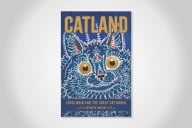You have /5 articles left.
Sign up for a free account or log in.
According to a National Geographic/Morning Consult poll, 77 percent of Americans think students should be taught “more” history.
As a survey research professional, I am sometimes suspicious of questions with such robust agreement. It’s not that I don’t believe the finding so much as when everyone seems to agree, there is often a more interesting question lurking under the surface.
In this case, I’m pretty sure it’s rooted in the word “more,” as in, when people say they want students to be taught “more” history, what is it, specifically, that they desire more of?
I am wary of “more,” because in my field, a wish for “more writing instruction” has been around seemingly as long as there has been such a thing as school. In recent times “more writing instruction” has resulted in an increasingly narrow curriculum designed around satisfying the dictates of standardized assessments and accountability regimes. It has not led to an improvement in student writing and has in fact done considerable damage to student attitudes about and engagement with writing.[1]
More bad and self-defeating pedagogy is -- and I do not think this is controversial -- not good.
Nonetheless, if asked a question about “more writing” or “more history,” I’m all for both, but you can bet all of those people agreeing about the need for more are not envisioning the same thing.
Take, for example, a very prominent recent piece of public history, The New York Times's 1619 Project.
Here we have a clear case of an offering of more history surrounding the country’s founding and the enduring legacy of slavery, an offering that was enthusiastically taken up by many, including the Pulitzer Center and the Chicago Public Schools, which joined forces to make sure that 200 to 400 copies of the project would go into every CPS high school.
On the other hand, it was labeled “propaganda” by former university professor of history Newt Gingrich.
So when we say “more history,” we have to also talk about “What history?” and “Whose history?”
It’s even more complicated. We have to also ask, “How do we do history?” History is not just names and dates. It is a way of thinking about the past, a process, a method. Our understanding of history is in constant evolution. What do we want students to be able to do with this history once we’re doing “more” of it?
Part of the answer to that question can be found in another finding from the same poll, where 88 percent of respondents agreed that “understanding history is important for understanding current events.”
Another difficult question to disagree with, but I ask again, what history? Whose history? To better understand the present condition of the United States, should we be dusting off our Watergate knowledge or listening to scholars of authoritarianism such as Sarah Kendzior, who has been scarily prescient when it comes to the arc of events?
Both? Neither? Who else? What else?
How about another unasked and therefore unanswered question?
Who will be doing this teaching of “more history”? When? What will not be taught to make space?
Kevin Kruse of Princeton University, a dedicated practitioner of public history on Twitter, observes in commenting on the survey that “The disconnect between the public desire for the teaching of history and the public resource actually devoted to it is depressing.”
This is the core story of the teaching of writing as well. Survey after survey says people believe that written communication skills are important, and yet at the college level, the core writing classes are most commonly taught by the most precarious employees. I wanted nothing more than to spend my life teaching students to write, but I am asked to accept $2,650 per course, per semester, to do it.
More, more, more -- just don’t ask us to, you know, pay for it.
American high school teachers teach more students and spend more time on direct instruction than any other developed country. When are they supposed to fit in this “more history” to go with our “more writing,” not to mention “more STEM”?
It is hardly fair to ask people to do more who are never given anything close to enough to begin with
And how do we reconcile this desire for more of everything with the increasing concern over the idea of childhood as “résumé building,” where being denied freedom and play is linked to both lower achievement in school and higher rates of depression and anxiety?
Deep down, I embrace the notion of “more” as an important part of learning. Over the years I have fundamentally shifted my pedagogy to get my students to write more, because more practice writing makes better writers.
But in asking students to write more, I had to choose to do less of other things.[2] I find this “less” vital to doing more of what’s important. Other people are concerned over what I do less of, suggesting that I am betraying something vital and important.
Aye, but there’s the rub, agreeing on what’s “important.”
“More” by itself doesn’t mean much of anything.
[1]I seem to recall a recent book about this issue.
[2]Mostly grading, which has turned out to be a win-win, IMO.





